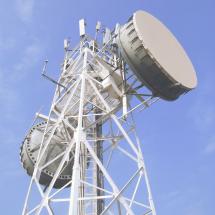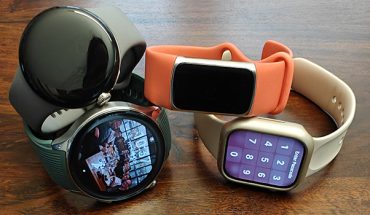The topic is hotly debated, and the experts on both sides have studies to which they can point with some confidence that show ‘conclusively’ different results.
Nevertheless, many Canadians complain of illness or sickness due to wireless radiation from cell phones, cell towers, smart meters and Wi-Fi; they have formed advocacy groups, made presentations to official bodies and lobbied government for regulatory changes and reviews of Canada’s safety levels for microwave radiation exposure.
They’re concerned about electro sensitivity (ES), a descriptive term given to symptoms believed to be caused by exposure to electromagnetic radiation (EMR). Other names for ES are: Electro hypersensitivity (EHS), Electromagnetic Sensitivity (EMS), Electromagnetic hypersensitivity and EMF syndrome.
According to advocacy group Canadians for Safe Technology (C4ST), physical symptoms of ES can range from mild effects such as headache, nausea, tingling, skin reactions, anxiety, sleep disruption, and tinnitus (buzzing/ringing in the ears) to painful and severe effects such as neurological conditions; cardiovascular, hormonal, and blood sugar irregularities; seizures; paralysis; and stroke.
Frank Clegg, who ran Microsoft Canada for fifteen years, now runs C4ST (a volunteer organized group made up of concerned parents, citizens and former industry leaders). Clegg and the group say wireless devices are already affecting the health of Canadians, and that’s in spite of reports that dispute such claims.
But Clegg and his group have gone further, and they are critical of the very make-up and function of certain groups that research and report on the topic.
Clegg points to a recent Health Canada-initiated study, conducted by the Royal Society of Canada (RSC) and its assembled panel, to conduct a review of the 1979 Health Canada wireless radiation regulation, Safety Code 6, and the potential health risks of radiofrequency fields from wireless telecommunication devices.
“We have uncovered documents that prove Health Canada is controlling the so-called ‘independent’ safety review by the Royal Society of Canada,” Clegg stated. “Health Canada is ignoring the science that explains why some Canadians are getting sick from microwave radiation.”
The Royal Society panel has been dogged by criticism and controversy: its Chair Daniel Krewski resigned when a previously un-disclosed industry conflict came to light; two more scientists later resigned and were replaced.
Dr. Anthony B. Miller, professor emeritus at the University of Toronto’s Dalla Lana School of Public Health, was likewise critical. The panel included members with “major links to the telecommunications industry,” he said. “This is a conflicted panel, with insufficient expertise in epidemiology. It ignored recent evidence that wireless radiation is a probable carcinogen.”
As noted, Safety Code 6 was first written in 1979; the de facto guide for Wi-Fi safety in home, schools, businesses and public spaces schools was reviewed and updated in 1999, but not since then, despite the boom in use, application and saturation of wireless devices and infrastructure.
Interestingly and somewhat ironically in light of current disagreements, the 1999 Panel Report wrote of non-thermal RF related effects with some concern 15 years ago: “There are documented biological effects of RF fields even at low, non-thermal exposure levels, below Safety Code 6 exposure limits. … Some of these biological effects brought about by non-thermal exposure levels of RF could potentially be associated with adverse health effects.”
“This RSC review is an expensive exercise that was corrupted by industry and so is a waste of taxpayer dollars,” Clegg concludes. “(T)he panel contrived to ignore important medical and scientific data,” he adds pointedly.
Needless to say, when the panel finally released its review earlier this year, many observers – including Clegg – were very disappointed, and their criticism was unabated.
So if the latest review of possible wireless radiation hazards is questionable, it’s understandable that some members of the public still have questions about the safe use of such technology. An organization should not be charged with investigating or reviewing itself, they say, and a truly independent, multi-disciplinary and fully transparent review of not just Canadian, but international wireless radiation standards, should be conducted.
-30-
submitted by Lee Rickwood





In the latest story we have posted on this topic, Clegg notes that his time at Microsoft was somewhat before the huge rise in use of wireless devices. Nevertheless, he says “I do regret, quite truthfully, the ‘push’ we made back then to get the technology into schools. I know more now than I did then.”
He has also noted that the C4ST campaign is strictly aimed at government, which is responsible for setting wireless guidelines and usage recommendations. No manufacturer, Microsoft or otherwise, is being criticized.
An independent multi-disciplinary review of international standards for microwave and RF radiation exposure has already been conducted. It’s called the Bioinitiative report and can be found online. It is very clear about the detrimental health effects.
Mr. Clegg and other campaigners against wireless communications technologies have failed continually on the basis of science. Not just in Canada. In the past year alone, official scientific/medical panels in Australia, the Netherlands, Norway and the UK have all come to the same conclusion of the Royal Society of Canada panel: that wireless communications technologies are safe at the safety standards levels prevailing in those countries, all of which are roughly the same as those in Canada. What remains for Mr. Clegg and other campaigners is to cry corruption or bias. The countries in question including Canada all score high on international ethics measurements. Is it likely that *all* these panels and their members are biased and corrupt? More likely that Mr. Clegg and others are sore losers on science, and have no cards left to play but mischief.
Clegg is a hypocrite. Never once does he criticize Microsoft for making wifi products or being a major cell phone manufacturer.